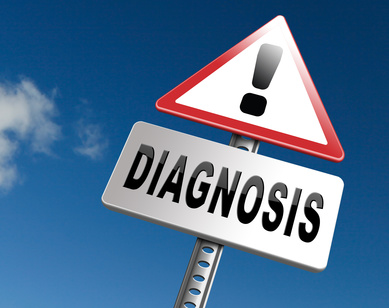Should You Get A Second Opinion In Your Cancer Care?
Free Consultation…
 Obtaining a second opinion on your care is your right as a patient. Never feel guilty about asking for one. All physicians have had patients either come to them for a second opinion or have had patients obtain one elsewhere. If this upsets your physician, then they are not the right one for you. It is the job of your physician to help you achieve the best outcome possible, regardless of where and by whom.
Obtaining a second opinion on your care is your right as a patient. Never feel guilty about asking for one. All physicians have had patients either come to them for a second opinion or have had patients obtain one elsewhere. If this upsets your physician, then they are not the right one for you. It is the job of your physician to help you achieve the best outcome possible, regardless of where and by whom.
If you think that getting a second opinion is not common, you should know that one report indicated that 56% of cancer patients obtain second opinions.(Hewitt, Breen, & Devesa, 1999)

Why And When To Seek A Second Opinion?
If you have been diagnosed with cancer it is crucial that your diagnosis is correct, your treatment plan is appropriate and you are comfortable with the specialists on your cancer care team and what they are recommending.
Even though you may feel an urgency to begin treatment, in most circumstances, you have time to do your research and get additional opinions without negatively impacting the effectiveness of your treatment.
Since it can take up to a few weeks to get a second opinion, confirm with your oncology providers how much time you can delay while you obtain a second opinion. Its important to recognize that even if you have already started treatment, its not too late to get a second opinion. In fact, you can obtain second opinions at any time point during your care (i.e. after your diagnosis, before your treatment, during your treatment, after your treatment.)
Its not uncommon for treatment plans to change after a patient gets a second opinion. In a University of Michigan study of breast cancer patients, more than half of them changed their treatment after getting a second opinion from a multidisciplinary tumor board of medical oncologists, surgeons, radiation oncologists and pathologists.
Here Are Some Examples Of Why You Might Consider Getting A Second Opinion:
- Pathology second opinions: If the pathology is read incorrectly, this can completely alter the treatment plan. One study recently reported that 11% of breast cancer pathology second opinions resulted in significant differences that changed the treatment plan.(Khazai, Middleton, Goktepe, Liu, & Sahin, 2015)
- Radiology second opinions: The oncology team relies very heavily on the radiology interpretation of your studies (i.e. CT scan, MRI, ultrasound, PET/CT scan, etc.) Depending on what is found on these studies, additional diagnostic and treatment plans will be recommended (i.e. biopsies, surgeries, radiation therapy and systemic therapies.)
- Radiation Oncology, Medical Oncology and Surgical Oncology second opinions: It is quite common for treatment plans to differ amongst specialists. Surgeons can differ in their approach, procedure and aftercare. Medical oncologists can vary on their choice of drug regimens, doses, and duration. Some are also more likely to discuss clinical trial options.
- Second opinion with academic experts in your cancer type: If any of the members of your cancer care team are not experts in your specific cancer, you might benefit from getting a second opinion at a center of excellence that specializes in this condition. This is especially important if you have a rare cancer type. Studies show that higher volume medical centers and specialty providers (i.e. surgeons, medical oncologists, pathologists, radiation oncologists) that diagnose and treat conditions requiring expertise in management often report better outcomes.(Gooiker et al., 2010; Liu et al., 2015)
- If any of your cancer team providers tell you that there is some uncertainty on the type or stage of your cancer, I recommend that you get a second opinion. They may even recommend that you obtain a second opinion. This also goes if you have any doubts about the diagnosis or treatment plan that you have been told during your first opinion.
- If your cancer care team providers offer you more than one management option and you are not sure which to choose, a second opinion should help to get other perspectives to help you make a decision.
- If you are having any difficulty understanding or communicating with any of your physicians, you feel rushed in your encounters or simply dont feel comfortable with any of them, get a second opinion.
- If you are receiving a treatment that is no longer working, and your doctors say that there is nothing else that they can do. They may even recommend hospice. If you feel that you want to get another opinion, do so.
- If your treatment seems too toxic or you are having serious side effects, and your doctors do not change your treatment, get another opinion.
- If you hear about patients receiving other treatments and tests, and your doctor cant address whether they might be helpful for your condition, consider a second opinion.
- If you have an interest in an integrative oncology approach to your cancer care. If this is not available with the group of providers you are currently seeing and you want an integrative approach to your cancer care, you will need to consult with a center that offers this service.
- If you want to find out which cancer drugs will likely be the most effective in the treatment of your cancer, consider getting a chemotherapy sensitivity assay conducted on your cancer.
Involve Your Cancer Care Team In Your Second Opinions
You will need to let your physicians know that you are interested in obtaining a second opinion, as the second opinion team will require access to all of your pertinent records. Communication between providers is important so as to ensure that you get the most out of the second opinion. Records that are typically requested include:
- Radiology studies and reports
- Pathology specimens and reports
- Laboratory reports
- Consultation and office encounter notes from your cancer care team providers
Make sure to request all of your records as soon as you know you are going for a second opinion so there are no additional delays, and make copies for your personal file. I recommend carrying a copy of your records with you to any second opinions even if they request another set of copies be sent to them ahead of time, as they potentially could get lost.
You will need to sign �release forms to allow sharing of your confidential medical information with the second opinion providers. Some insurance plans may require a request for a second opinion from your primary care physician or a member of your cancer care team.

Will Your Insurance Company Pay For A Second Opinion?
Many insurance providers, pay for second opinions.
So that there are no surprises, we recommend that you call them before you get a second opinion and ask. Often, insurance companies will only pay for providers in their network. Find out from them if there is a specific process they require you to follow to obtain this second opinion.
You have the right to appeal any denial for a second opinion, but you will need follow their appeal process. Keep records of all interactions (written, phone, emails, names, dates, etc.)
What Do You Do After You Have Had Your Second Opinion?
If the second opinion is the same as the first opinion, you will likely feel more reassured about the diagnosis, stage and treatment plan. At this point, you will need to decide which center or provider you will want to use for your treatment.
If there are differences in the two opinions, you have a few options on what to do next:
- Discuss the second opinion with your first opinion providers, and ask them their thoughts on it. I find that is often very helpful to ask them to communicate directly with each other to see if they can come to an agreement.
- Obtain a third opinion from another specialist, ask them review the first two opinions and give you their recommendation. As always, it is best if the consulted specialists can call each other to discuss your case. You have a right to ask them to do so.
- Conduct your own research by referring to the following expert panel recommended guidelines:
The Bottom Line:
At the end of the day, you will need to make a final decision based on the different opinions, recommendations, programs and providers. If the opinions are all very different, it is very unlikely that there is only one right answer and you will have to make the best choice for you based on your circumstances and the information you have.
Dont feel that you must get a second opinion. The vast majority of patients do not get second opinions if they trust their team and are in agreement with their diagnosis and treatment plan. You can always get a second opinion at a later date if you decide to do so.
References:
Gooiker, G. A., van Gijn, W., Post, P. N., van de Velde, C. J., Tollenaar, R. A., & Wouters, M. W. (2010). A systematic review and meta-analysis of the volume-outcome relationship in the surgical treatment of breast cancer. Are breast cancer patients better of with a high volume provider? Eur J Surg Oncol, 36 Suppl 1, S27-35. doi: 10.1016/j.ejso.2010.06.024
Hewitt, M., Breen, N., & Devesa, S. (1999). Cancer prevalence and survivorship issues: analyses of the 1992 National Health Interview Survey. J Natl Cancer Inst, 91(17), 1480-1486.
Khazai, L., Middleton, L. P., Goktepe, N., Liu, B. T., & Sahin, A. A. (2015). Breast pathology second review identifies clinically significant discrepancies in over 10% of patients. J Surg Oncol, 111(2), 192-197. doi: 10.1002/jso.23788
Liu, C. J., Chou, Y. J., Teng, C. J., Lin, C. C., Lee, Y. T., Hu, Y. W., . . . Huang, N. (2015). Association of surgeon volume and hospital volume with the outcome of patients receiving definitive surgery for colorectal cancer: A nationwide population-based study. Cancer. doi: 10.1002/cncr.29356

